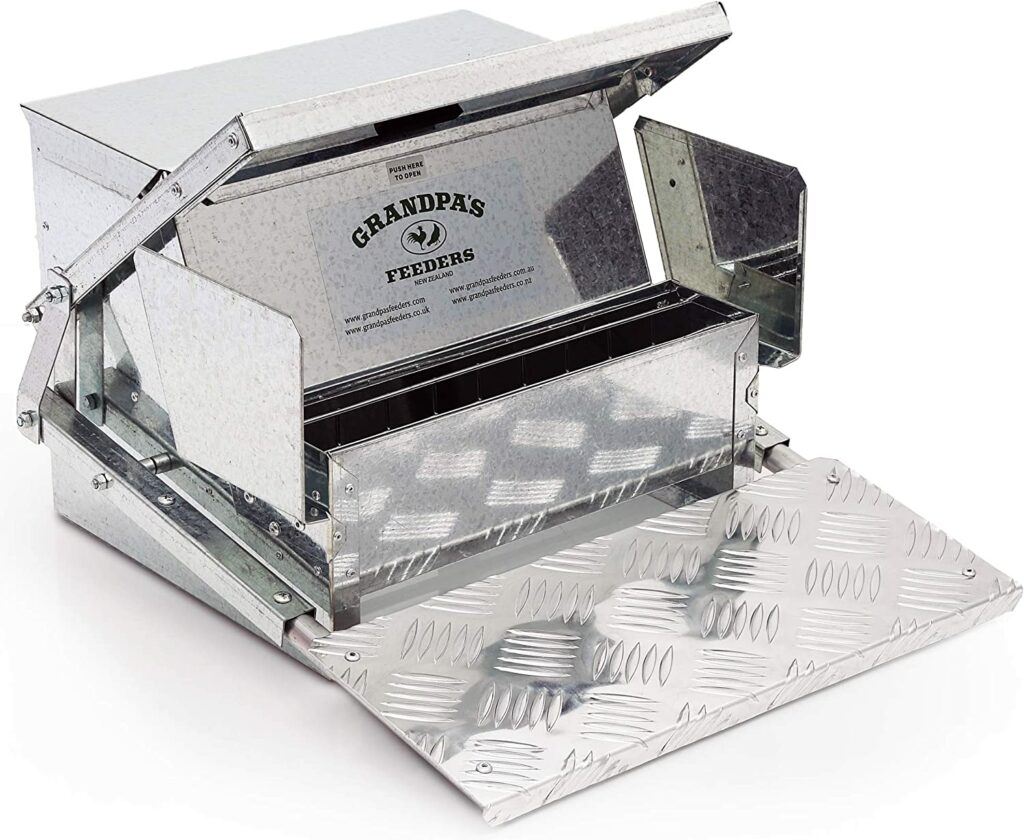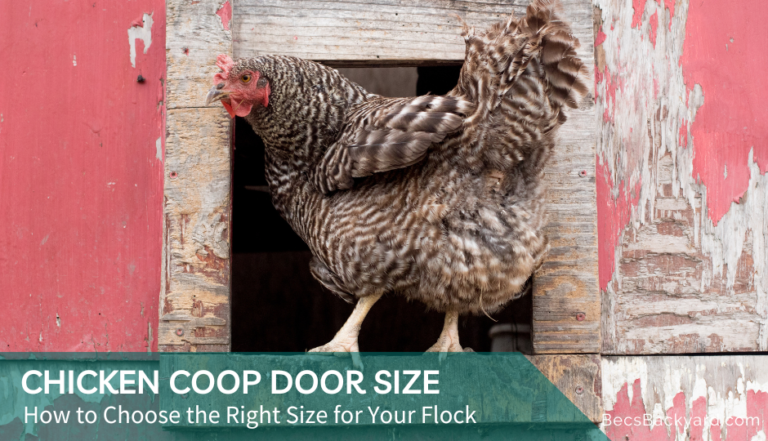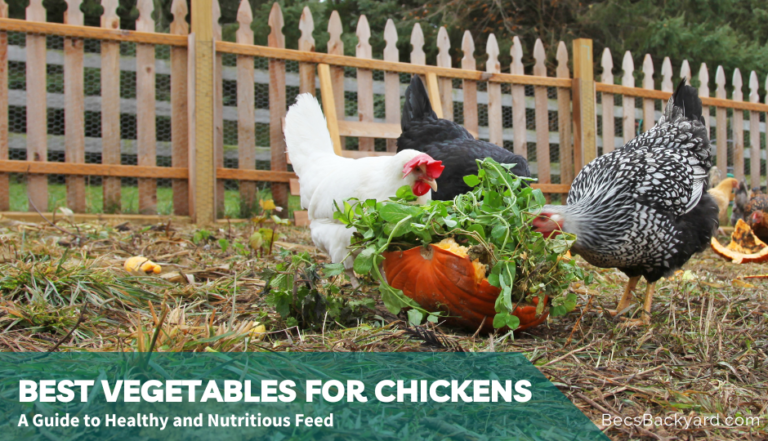How to Raise Chickens: A Beginner’s Guide
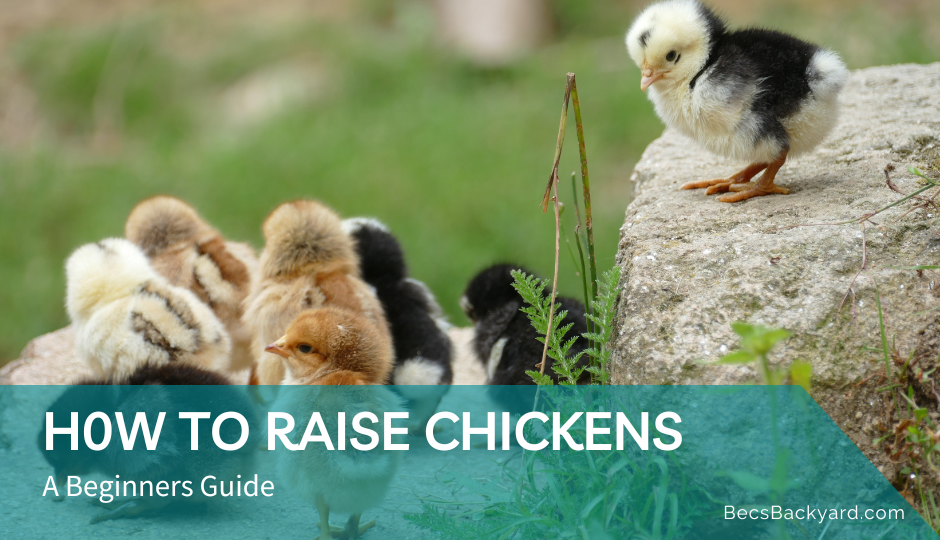
Raising chickens is a fun and rewarding experience that can provide fresh eggs, meat, and even companionship. For those who are new to chicken keeping, it can be overwhelming to know where to start. This article will provide a beginner’s guide on how to raise chickens, including tips on breeds, housing, feeding, and care.
First, it’s important to decide whether to start with chicks or laying hens. Chicks require more attention and care, but they can be a great way to bond with your chickens from the beginning. On the other hand, laying hens are already mature and can provide eggs right away. It’s also important to choose the right breed of chicken for your needs and climate. Some breeds are better for meat, while others are better for egg production.
Once you’ve decided on the type of chicken to raise, you’ll need to provide them with a safe and comfortable living space. This includes a coop for sleeping and laying eggs, as well as a run for exercise and fresh air. It’s important to keep the coop clean and dry to prevent disease and pests. Feeding your chickens a balanced diet of feed and fresh water is also essential for their health and egg production. With proper care and attention, raising chickens can be a fun and rewarding hobby for anyone to enjoy.
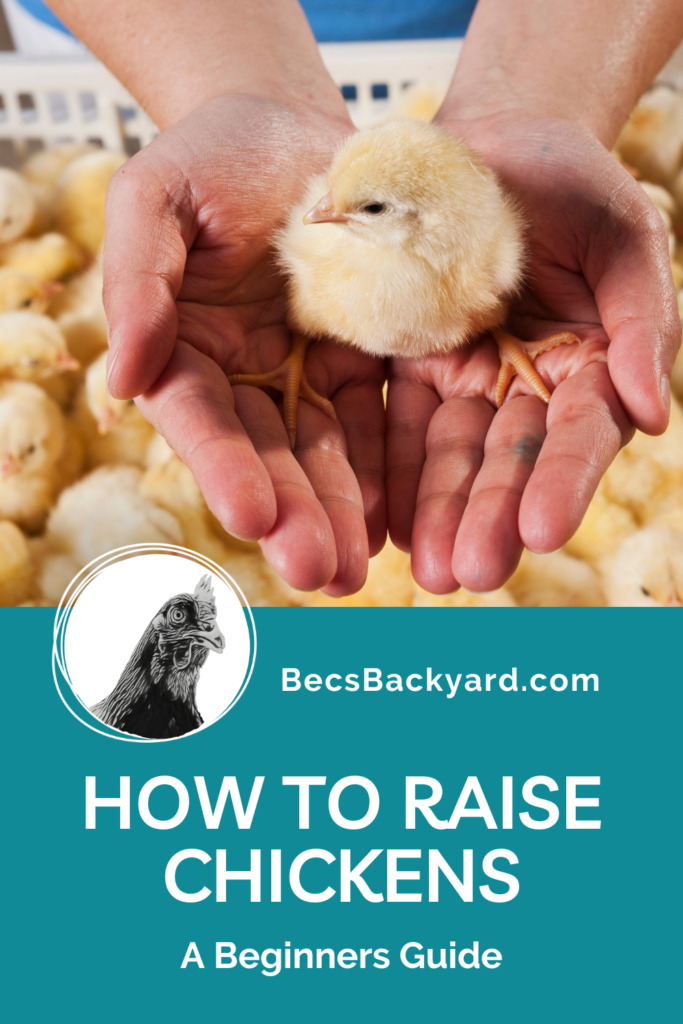
How to Raise Chickens
Choosing the Right Breed
When it comes to raising chickens, choosing the right breed is an important factor that will impact the success of your backyard flock. There are many different breeds of chickens, each with their own unique characteristics. Some breeds are better suited for egg-laying, while others are bred for meat purposes. Some breeds are more docile and friendly, while others are more aggressive and independent.
Before selecting a breed, it’s important to consider the purpose of raising chickens. If the primary goal is to have a steady supply of fresh eggs, then egg-laying breeds such as Leghorns, Rhode Island Reds, and Plymouth Rocks are good options. These breeds are known for their high egg production rates, with some hens laying up to 300 eggs per year.
On the other hand, if the goal is to raise chickens for meat, then meat breeds such as Cornish Cross and Broilers are ideal. These breeds grow quickly and are ready for slaughter at around 9 weeks of age.
For those who want to raise chickens for both eggs and meat, dual-purpose breeds such as Sussex, Wyandotte, and Orpingtons are a good choice. These breeds are known for their ability to produce both eggs and meat.
Another important factor to consider when choosing a breed is temperament. Some breeds are known for being docile and friendly, while others are more aggressive and independent. Docile breeds such as Silkies and Cochins are good choices for families with children or those who want chickens that are easy to handle. On the other hand, more independent breeds such as Leghorns and Easter Eggers are better suited for those who want chickens that can fend for themselves.
In summary, choosing the right breed of chicken is a crucial step in raising a backyard flock. Factors such as egg production, meat quality, and temperament should be considered before making a final decision. By selecting the right breed, backyard chicken keepers can enjoy a successful and rewarding experience.
| Breed | Eggs Laid per Year | Ease of Care | Temperament | Tolerance to Hot Climate | Tolerance to Cold Climate |
|---|---|---|---|---|---|
| Rhode Island Red | 200-300 | Easy | Docile | Good | Good |
| Sussex | 250-300 | Easy | Friendly | Good | Good |
| Plymouth Rock | 200-280 | Easy | Calm | Good | Good |
| Leghorn | 280-320 | Moderate | Active | Good | Moderate |
| Australorp | 250-300 | Easy | Gentle | Good | Good |
| Orpington | 180-220 | Easy | Friendly | Moderate | Good |
| Wyandotte | 200-250 | Easy | Calm | Good | Good |
| Brahma | 140-200 | Easy | Docile | Good | Excellent |
| Easter Egger | 200-280 | Easy | Varied | Good | Good |
| Silkie | 100-150 | Moderate | Gentle | Moderate | Poor |
Please note that these ratings are subjective and can vary based on individual birds and specific care conditions.
Preparing the Coop
Before bringing chickens home, it’s essential to prepare a clean, safe, and comfortable living space for them. Here are some important steps to prepare the coop:
Choose the Right Size
The coop should be spacious enough to accommodate the number of chickens you plan to keep. As a general rule, each chicken needs at least 3-4 square feet of indoor space and 8-10 square feet of outdoor space. It’s better to build a slightly larger coop than a smaller one, as chickens need room to move around and exercise.
Clean and Disinfect
Before placing the chickens in the coop, it’s crucial to clean and disinfect it thoroughly. Remove any old bedding, debris, and feces. Scrub the walls, floors, and nesting boxes with warm, soapy water and rinse well. Then, spray the coop with a disinfectant, white vinegar works well, and let it dry completely before adding new bedding.
Add Flooring Material
A chicken coop and run needs an absorbent material to keep the coop dry. Common options include sand, pine shavings, and shredded paper. Spread a thick layer of the material on the floor of the coop, making sure to replace it regularly to maintain cleanliness. Our preferred material is builders sand, it is cheap and allows for moisture to drain away. Any solids (poop) can be scooped up using a slotted scoop and discarded.
Provide Nesting Boxes
Chickens need a private, dark, and cozy space to lay their eggs. Nesting boxes should be placed in a quiet area of the coop, away from the roosting area. Each nesting box should be at least 12×12 inches and filled with clean material that is easily removed and replaced if it gets soiled. It is not necessary to provide ‘bedding’ for chickens because they sleep on a roost at night. Any chickens that are sleeping in the nesting boxes needs to be placed onto the roost at night.
Install Perches
Chickens need perches to sleep comfortably at night. Perches should be placed at least 2 feet above the ground and be wide enough for the chickens to roost comfortably. A good rule of thumb is to provide 8-10 inches of perch space per chicken.
Feeding and Watering
When it comes to feeding and watering chickens, there are a few key things to keep in mind. First and foremost, chickens need fresh water available to them at all times. A good rule of thumb is to provide at least one gallon of water per ten chickens. It’s also important to keep the water clean and free of debris. Regularly cleaning and refilling waterers is essential for the health of your flock.
In terms of food, there are a variety of options available. Chickens can be fed a commercial feed, which is a balanced blend of grains and other nutrients. It’s important to choose a feed that is appropriate for the age and type of chicken you have. For example, starter feed is appropriate for chicks, while layer feed is designed for hens that are laying eggs.
In addition to commercial feed, chickens can also be fed table scraps and other treats. However, it’s important to make sure that these foods are safe for chickens to eat. Foods that are high in salt, sugar, or fat should be avoided, as should anything that is moldy or spoiled. Kitchen scraps should not be the primary source of your chickens food, if you are keeping chickens for their egg production, in our opinion their main source of nutrition needs to come from the nutritionally balanced layer feed.
When feeding chickens, it’s important to provide them with enough food to meet their nutritional needs. A good rule of thumb is to provide each chicken with about a quarter pound of feed per day. However, this can vary depending on the age and size of your chickens, as well as their activity level.
Overall, providing your chickens with clean water and a balanced diet is essential for their health and well-being. By following these simple guidelines, you can ensure that your flock is happy and healthy.
Health and Hygiene
Raising chickens comes with the responsibility of ensuring their overall health and well-being. Proper health and hygiene practices can prevent diseases and infections, keeping both the chickens and their owners healthy. Here are some key health and hygiene practices to follow:
Cleanliness
Maintaining a clean and dry coop is essential for keeping chickens healthy. Regularly cleaning the coop and removing any accumulated droppings or debris can prevent the buildup of harmful bacteria and parasites. Flooring material should also be monitored and refreshed when required to prevent moisture retention and the growth of bacteria.
Biosecurity
Biosecurity measures help prevent the spread of diseases between chickens and other animals. This includes keeping the coop and surrounding area clean, limiting visitors to the coop, and preventing contact between chickens and wild birds or other animals. New chickens should be quarantined before being introduced to the coop to prevent the introduction of diseases.
Nutrition
Providing chickens with a balanced diet is crucial for their health and well-being. A balanced diet includes a mix of grains, protein, and fresh fruits and vegetables. Access to clean water is also essential for chickens to maintain their health. As mentioned earlier if the main function of your chickens is to produce you eggs, then their primary source of nutrition should be a balanced layers feed.
Health Monitoring
Regularly monitoring the health of chickens can help detect any signs of illness or disease early on. This includes observing their behavior, checking their droppings for abnormalities, and inspecting their feathers and skin for signs of parasites or infections. Sick chickens should be separated from the rest of the flock and treated promptly.
Vaccinations
Vaccinations can help prevent the spread of common chicken diseases. Chickens should be vaccinated against diseases such as Marek’s disease, Newcastle disease, and Infectious Bronchitis. Consult with a veterinarian to determine which vaccinations are necessary for your flock. If you source your chicks from a distributor they have likely had their vaccinations.
By following these health and hygiene practices, chicken owners can ensure the health and well-being of their flock.
Egg Collection and Incubation
When raising chickens, collecting and incubating eggs is an essential part of the process. Here are some tips on how to collect and incubate eggs properly:
Egg Collection
Collect eggs daily: Eggs should be collected at least once a day to prevent them from getting dirty or cracked. This also helps to ensure that the eggs are fresh and don’t spoil.
Handle eggs gently: When collecting eggs, it’s important to handle them gently to avoid cracking or damaging them. Use a basket or container that won’t put pressure on the eggs.
Remove broody hens: Occasionally, a hen may become broody and refuse to leave her nest. If this happens, gently remove the eggs from under her, being prepared for some squawking and pecking.
Store eggs properly: Eggs should be stored in a cool, dry place and turned daily to prevent the yolk from sticking to the shell. They can be stored for up to one week before incubation.
Incubation
Choose an incubator: There are many different types of incubators available, including forced-air and still-air incubators. Forced-air incubators have a fan that helps to circulate the air and maintain a consistent temperature, while still-air incubators rely on natural convection to regulate temperature.
Monitor temperature and humidity: The temperature and humidity inside the incubator must be carefully monitored and maintained for successful hatching. The ideal temperature for incubating chicken eggs is between 99.5 and 100 degrees Fahrenheit, and the humidity should be around 50%.
Turn eggs regularly: Eggs should be turned at least three times a day to prevent the embryo from sticking to the shell. This can be done manually or with an automatic egg turner.
Wait patiently: Incubation takes approximately 21 days, so it’s important to be patient and avoid opening the incubator unnecessarily. Candling the eggs can help to monitor the development of the embryo and determine if any eggs are not viable.
By following these tips, anyone can successfully collect and incubate chicken eggs, leading to a healthy and productive flock.
Troubleshooting Common Issues
Raising chickens can be a rewarding experience, but it’s not without its challenges. Here are some common problems that chicken owners may encounter and how to troubleshoot them.
Problem: Chickens not laying eggs
There are several reasons why chickens may stop laying eggs. It could be due to age, stress, or a lack of proper nutrition. Make sure your chickens are getting enough protein and calcium in their diet. Also, ensure that they have access to clean water and a comfortable environment. If your chickens are still not laying eggs, it may be time to retire them and add younger birds to the flock. It is important to note that chickens that aren’t laying due to age can still provide function in a backyard garden by keeping up pest control, and creating compost.
Problem: Foul-smelling coop
A smelly coop is not only unpleasant but can also be a sign of poor hygiene and potential health problems for your chickens. Make sure to clean the coop regularly, removing any soiled bedding and replacing it with clean, dry bedding. Also, ensure proper ventilation and drainage to prevent moisture buildup.
Problem: Predators
Predators such as raccoons, foxes, and hawks can be a serious threat to your chickens. Make sure to secure your coop with sturdy fencing and locks. Consider using motion-activated lights and alarms to deter predators. You can also train your chickens to seek shelter in the coop at night to reduce their risk of being attacked.
Problem: Aggressive behavior
Chickens can sometimes exhibit aggressive behavior towards each other or their owners. This could be due to overcrowding, lack of space, or stress. Make sure to provide enough space for your chickens to move around and engage in natural behaviors. You can also try adding enrichment activities such as perches and toys to reduce stress and boredom.
Problem: Health issues
Chickens can be susceptible to a variety of health issues such as respiratory infections and parasites. Make sure to keep a close eye on your chickens and watch for any signs of illness such as coughing, sneezing, or lethargy. Consult with a veterinarian if you suspect any health issues and follow their recommended treatment plan.
By troubleshooting common issues and taking preventative measures, you can help ensure a healthy and happy flock of chickens.
Frequently Asked Questions
How do I build a chicken coop?
Building a chicken coop can be a fun and rewarding project. The coop should be sturdy, secure, and provide enough space for your chickens to move around comfortably. You can find many chicken coop plans and designs online or in books. Make sure to include a nesting box, roosting area, and a door that can be securely closed at night to keep predators out.
What do chickens need to eat?
Chickens need a balanced diet that includes protein, carbohydrates, vitamins, and minerals. They can eat commercial chicken feed, which comes in different types and formulas designed for different stages of growth. You can also supplement their diet with fresh fruits and vegetables, grains, and protein-rich foods like mealworms or scrambled eggs.
How often do I need to clean the chicken coop?
Cleaning the chicken coop is an important part of keeping your chickens healthy and happy. You should clean the coop at least once a week, removing any soiled bedding and replacing it with fresh, clean bedding. You should also clean and disinfect the nesting boxes and roosting areas regularly to prevent the buildup of bacteria and parasites.
How do I keep my chickens healthy?
Keeping your chickens healthy involves providing them with a clean and safe living environment, a balanced diet, and access to fresh water at all times. You should also keep an eye out for any signs of illness or injury, and seek veterinary care if necessary. Regularly inspect your chickens for pests like mites or lice, and treat them promptly if you find any.
What do I need to know about raising baby chicks?
Raising baby chicks can be a rewarding experience, but it requires careful attention and care. You will need to provide them with a warm and secure brooder, feed them a specialized chick starter feed, and monitor their health and behavior closely. As they grow, you will need to gradually introduce them to their outdoor environment and integrate them into your existing flock.
How do I protect my chickens from predators?
Predators like raccoons, foxes, and hawks can be a threat to your chickens, especially at night. You can protect them by building a secure coop with sturdy walls and a predator-proof door. You can also install fencing around your coop and run to keep predators out. Consider using motion-activated lights or sound devices to deter predators, and avoid leaving food or water sources out overnight.
Conclusion
Raising chickens can be a fun and rewarding experience for anyone who is willing to put in the time and effort. By following the steps outlined in this guide, beginners can get started on the right foot and enjoy the benefits of fresh eggs, meat, or simply the pleasure of watching their feathered friends.
One of the most important things to remember when raising chickens is to provide them with a safe and comfortable living environment. This includes a well-ventilated coop with ample space for each bird, clean bedding, and a secure outdoor area for them to roam and forage.
Another key aspect of raising chickens is their diet. Chickens require a balanced diet of protein, carbohydrates, and essential nutrients to stay healthy and produce quality eggs. This can be achieved by providing them with their commercial feed and access to kitchen scraps, and fresh greens for grazing.
It’s also important to keep an eye on your chickens’ health and behavior. Regularly checking for signs of illness or injury, such as lethargy, loss of appetite, or abnormal droppings, can help prevent and treat any potential health issues.
Overall, raising chickens can be a fun and rewarding experience for both beginners and experienced farmers alike. By following the tips and guidelines outlined in this guide, anyone can enjoy the benefits of fresh eggs, meat, or simply the joy of watching their feathered friends thrive.


